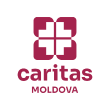Organizații vizate:
Anunțuri de Angajare
- Detalii
- Categorie: Angajări
PME national consultant, IOM Moldova
Informațiile prezentate în articolul de mai jos pot să nu mai fie actuale sau să nu mai reflecte activitățile și programele curente. Anunțul este păstrat în arhivă pentru a asigura transparența și accesul public la informațiile despre inițiativele și proiectele implementate anterior.
CALL FOR APPLICATIONS
Reference code: SVN2024-27
Open to External Candidates
|
Position Title |
: |
PME national consultant |
|
|
Duty Station |
: |
Chisinau, Republic of Moldova |
|
|
Type of Appointment Duration of Consultancy |
: : |
Consultancy 75 working days during 15 September 2024 – 15 June 2025 |
|
|
Estimated Start Date |
: |
15 September 2024 |
|
|
Closing Date |
: |
06 September 2024 |
Established in 1951, IOM is a Related Organization of the United Nations, and as the leading UN agency in the field of migration, works closely with governmental, intergovernmental and non-governmental partners. IOM is dedicated to promoting humane and orderly migration for the benefit of all. It does so by providing services and advice to governments and migrants.
- Nature of the consultancy: National consultant supporting the IOM and Moldovan national stakeholders to upgrade the Extended Migration Profile of the Republic of Moldova template and contribute to updating of the IOM’s Global Migration Profile Guidelines to ensure sustainability, legislative and policy relevance and linkage to overall international and national development and statistical frameworks. Category B contract.
- Project Context and Scope:
2.1 Overall background
The International Organization for Migration (IOM) is the leading intergovernmental organization in the field of migration. IOM works to help ensure the orderly and human management of migration, to promote international cooperation on migration issues and to assist the national governments in the development of migration management policies, programs and instruments based on solid evidence and statistics.
IOM its commitment to supporting member states to produce quality, accessible, disaggregated, reliable and timely data which are essential to inform policies, action and public opinion. The importance of data is well recognized and highlighted in multiple international frameworks, and the critical need for it is felt starkly in times of crisis, as the global COVID-19 pandemic has once again demonstrated.
According to IOM Migration Data Strategy1, a key IOM goal is to improve the evidence base for good migration governance in support of sustainable development, effective humanitarian action and peaceful societies, and to support implementation, monitoring and reporting by relevant stakeholders on their actions in support of relevant international frameworks. To this end, IOM is using various data tools and instruments to collect, analyse, and capitalize on migration-related evidence to support its own programming and to assist states in designing policies and programs that best respond to migrants' needs, capacities, and challenges. These tools include Migration Profiles, Diaspora Mapping, Diaspora Tracking Matrix, Migrant Profiling, Migration Governance Indicators, and others.
Initially, Migration Profiles were conceived of as a concise statistical report, prepared according to a common framework, which could make it easier to understand the migration situation “at a glance” in a particular country. Over time, the Migration Profile has evolved from being a means to bring together data from a wide range of sources to a more elaborate process involving consultation with many different actors. The key goal is to help identify and develop strategies to address data gaps and produce the evidence required to manage migration effectively. The process of preparing Migration Profiles can promote discussion about migration policy, coherence and coordination between ministries and other stakeholders. Migration Profiles have rapidly become a tool to promote evidence‐based policymaking. Migration Profiles ranged from short 5−10 pages statistical overviews to longer more comprehensive reports based on extensive consultation and analysis of the migration situation of a particular country.
Followed by the recommendations of the Global Forum for Migration and Development (GFMD) and taking stock of the experience of more than 80 countries migration profiles developed by various stakeholders, IOM has issued in 2011 a Practical guide and a framework for developing national owned Migration Profiles titled Migration Profiles: Making the Most of the Process2.
In order to support evidence-based policymaking, starting from 2012, IOM has supported the Government of Moldova in developing and implementing eight Extended Migration Profile (EMP) reports, which include all available statistical data on migration for the period 2010-2021. The aim of the EMP exercise in Moldova is to foster efficient migration management by supporting the development of evidence-based policies. During the years of implementation in Moldova, the EMPs have broadened the national stakeholder’s knowledge base about migration, enabled it to assess how migration can beneficially impact development, improved the use and dissemination of existing migration information among relevant stakeholders, and supported the establishment of mechanisms for regular reporting on migration-related trends and the impact of migration. To complement the EMP migration data collected from administrative sources, IOM Moldova has implemented several other data collection instruments such as Diaspora Mapping and Migrants Profiling which uses both quantitative and qualitative research methods to gather relevant information on the impact of the migration related policies and programs on the final beneficiaries – Moldovan diaspora and labor migrants.
In this context, in partnership with the World Bank and with the EU’s support, during 2011-2012 IOM has mapped the Moldovan Diaspora residing in the Russian Federation and in four EU destination countries (France, Italy, United Kingdom and Portugal). Subsequently, in 2017 within a Confidence Building Measures EU financed project, the Moldovan diaspora was further mapped in six destination countries (Germany, UK, Israel, Italy, Portugal and Russian Federation). Supplementary, a separate diaspora mapping report was issued in 2017 focusing specifically on the peculiarities of the diaspora communities originating from the left bank of the Nistru River.
Moreover, during 2019 IOM executed an in-depth study on the profile of Moldovan labor migrants’ experiences, needs, perceptions and their future plans in 6 destination countries and in Moldova, supplemented in 2020 with a rapid assessment of the pandemic consequences on the vulnerabilities, specific needs and future plans of the Moldovan diaspora and labor migrants in 10 main destination countries in the context of COVID-19. Furthermore, during 2020 IOM executed a study on the mobility-driven impact of COVID-19, numbers and profiles of the returning migrants as well as specific vulnerabilities of groups affected by the decrease of remittances. At the same time, as part of the MiDL project of UNDP, local migration profiles of 38 rural communities were developed with data available and/or collected locally; those local migration profiles were used to mainstream migration in the local communities’ social-economic development strategies and development processes.
Furthermore, to help countries assess the comprehensiveness of their migration policies and governance frameworks, the IOM developed the Migration Governance Indicators (MGI) framework, which was implemented in Moldova at the national level during 2017, 2018, 2020, and 2021. This enabled Moldovan central public authorities to evaluate national migration policies and institutional frameworks in a structured way and identify areas with potential for further development.
In the context of the Ukraine Response, during 2022-2024, IOM has deployed several rounds of Displacement Tracking Matrix (DTM)3 Surveys focusing mainly on collecting data on refugees and TCNs from Ukraine, on their displacement patterns, intentions, and needs aim to capture their displacement trends and identify their main profiles, immediate humanitarian needs and intentions.
Additionally, in 2023 a DTM-MGI data collection in Moldova have been combined to develop an innovative approach in the municipalities of Balti and Cahul of the Republic of Moldova producing a joint report which analysis the extent to which migration policies and services available in Balti and Cahul address the needs of migrants, directly from migrants' perspective. Specifically, the evaluation considered the characteristics and needs of Ukrainian displaced population and TCNs and the local migration governance landscape4.
In addition, the impact of the war in Ukraine on the Moldovan returnees from abroad was analysed by IOM in 2023 focusing on the contextual analysis of the challenges, needs, vulnerabilities, and further intentions of the Moldovans returning to their home country, and the impact of the war in Ukraine on their social-economic situation5.
2.2 Latest global and national developments
However, since the EMP was first launched, there have been significant changes in institutional and policy frameworks, as well as migration patterns and trends at the global, regional, and national levels. These changes are not reflected in the current EMP template and in the set of the indicators, making it necessary to thoroughly revise and update it, both in Moldova and in other countries.
Global developments
Some of the most relevant developments was the adoption by all UN Member States in 2015 of the Agenda 2030 which provides a comprehensive framework for measuring sustainable development, including from a migration governance perspective, encapsulated in all 17 Sustainable Development Goals (SDGs) and which underscores the multifaceted impacts of migration on sustainable development. However, the central reference to migration in the SDGs is target 10.7 on facilitating “orderly, safe, regular and responsible migration and mobility of people, including through the implementation of planned and well-managed migration policies”.
The Government of Moldova has gone through the process of nationalization and adaptation of SDGs indicators to its local context which implies not only their integration into the national strategic framework, supplemented with additional indicators that reveal the national context and priorities, but also the establishment of a system of reporting and assessing the progress in achieving each relevant goal for the Republic of Moldova.6 In order to ensure the principle of universality of the global agenda and the fact that „no one is left behind”, Moldovan Government pledged to disaggregate, where relevant, the indicators according to certain criteria depending on the specifics of SDG targets, such as gender, age, ethnicity, migrant status, disability, areas of residence, and other characteristics.
The incorporation of target 10.7 into the 2030 Agenda created the need to define and measure the “planned and well-managed migration policies”. This is why, in 2015, the International Organization for Migration (IOM) developed the Migration Governance Framework (MiGOF). This Framework offers a concise view of an ideal approach that allows a State to determine what it might need to govern migration well and in a way that suits its circumstances. In order to operationalize the MiGOF, IOM worked with The Economist Impact to develop the Migration Governance Indicators (MGI), a standard set of approximately 90 indicators to assist countries in assessing their migration policies and advance the conversation on what well-governed migration might look like in practice. In the process of nationalization and adjustment to the national context, the SDG indicators, since 2022 IOM has used the MGI framework to set up a new aggregated target for tracking relevant progress in a more systematic and iterative manner the progress under the 10.7.2 global SDG indicator. Another development was the adoption of the Global Compact of Migration (GCM) in 2018 by 164 states which is the first-ever intergovernmental agreement to cover all dimensions of international migration in a comprehensive and holistic manner. These compact outlines 23 objectives for better managing migration at local, national, regional, and global levels. While it is non-legally binding, it represents a significant step towards more coordinated and humane migration policies. With the initiation of activities related to developing the GCM, the Republic of Moldova has become an active supporter, making relevant contributions to the document drafting process. In this context, national priorities were identified and formulated through a participatory and carried subsequent national voluntary reviews in the context of GCM’s implementation. The implementation of the GCM by Moldova supports the enhancement of migration governance, and help addressing the challenges and reap the benefits of migration for a country where almost a quarter of the country’s population currently is residing abroad on a temporary as well as more permanent basis.
National developments
The country’s long-term goal is to address migration’s demographic, social, and economic effects by tackling underlying development challenges in multiple sectors. This effort aims to make Moldova a better and safer place while unlocking the potential of migration for the sustainable development of its cities and rural communities alike. This approach has led to consistent improvement in the country’s migration management, stemming from important public policies that reflect national interests and priorities. These improvements are evident in fields such as diaspora engagement, prevention and counteraction of irregular migration and human trafficking, improved management of Moldovan labour migration abroad, cooperation with destination countries, return and reintegration of Moldovan migrants, and employment and livelihood opportunities for foreigners residing in Moldova.
Therefore, aware of the Moldovan diaspora’s migration development potential, the Moldovan Government established the Diaspora Relations Bureau (BRD) in 2012 as a General Department within the State Chancellery, under the direct supervision of the Prime Minister. The BRD is responsible for developing and implementing an integrated (mainstreaming) approach to diaspora, migration, and development (DMD) at both the central and local levels, including through a DMD network of national focal points (DMD NFPs) appointed within all central public authorities. This network was extended to the local level in 2017. The Government’s commitment to this mainstreaming mechanism was reaffirmed in 2016 with the adoption of the National Diaspora Strategy 2025 and its implementation plans.
This policy document paves the way to the adoption and implementation of comprehensive migration coordination mechanism that applies a whole-of-government approach to migration. This includes various levels of inter-ministerial commissions and committees, working groups with various moderators, etc. An Interministerial Committee on DMD at the state secretaries’ level was established to ensure coherent and participatory M&E processes and the implementation of an integrated approach to DMD. Additionally, the Commission for Migration and Asylum Coordination created in 2006 had been actively engaged during 2022-2024 to monitor and coordinate activities in the fields of migration, asylum, statelessness, and the integration of foreigners in the Republic of Moldova, ensuring a uniform and coherent application of governmental policies in these areas. Also, the activity of the National Council for the Integrated Management of the State Border represented an effective platform to discuss policy programs and other important issues in the field of immigration, admission and stay of foreigners in the Republic of Moldova. Labour market liberalisation for foreigners in certain sectors of the economy and simplification of admission and documentation procedures for those who want to work or invest in the Republic of Moldova were initiated and are promoted by the national authorities since 2020. Since the onset of the war in Ukraine, Moldovan authorities have committed to hosting thousands of Ukrainians and third-country nationals, mobilizing all services to assist and protect people fleeing the war, and supporting socio-economic integration for those who decided to stay in the country for a longer period. Moreover, in recent years, Moldova has increasingly transitioned from a country of origin to a country of destination for labour migrants and for those seeking higher education. To respond to foreigners’ integration needs and challenges, with support of IOM the Government of Moldova developed and adopted the Programme on Managing Migration Flow, Asylum, and the Integration of Foreigners for 2022–2025. This policy document constitutes the national-level migration strategy with the main goal of facilitating the development of an integrated migration management system. To implement the programme, the Bureau for Migration and Asylum was reorganized in the General Inspectorate for Migration of the MIA with the modification of its organizational structure (see the GD No. 16/2023), which will enforce , the legal framework, including on the integration of foreigners.
The internal institutional and policy changes mentioned above led to an enhanced migration management institutional framework and support programs to valorise the migration for development and address the challenges faced by migrants. For instance, the engagement of the diaspora in a positive and productive dialogue with the institutions in the country of origin was expanded in new fields. National actors who in the past were not previously involved in the leveraging of migration’s positive potential for sustainable development – now are champions in promoting it, adopting a progressive discourse. One such recent example is the Ministry of Environment, which is working to mainstream migration into the Second National Adaptation Plan of Moldova. The progress achieved in this respect and in other instances has been extensively outlined in the Global Compact on Migration National Voluntary Review Reports submitted by the Government in 2022 and 2023 but is yet to be reflected in the updated EMP.
In the context of current EU integration processes and challenges such as the high influx of Ukrainian refugees, third-country nationals, and risks of irregular migration, the Moldovan Government is reforming its labour migration management policy framework. The aim is to develop an integrated migration management system based on strong institutions, effective use of evidence, clear procedures, risk analysis and management, and enhanced inter-institutional and international cooperation. This approach prioritizes policy coherence, balancing the needs of various sectors, and aligning with Moldova’s EU accession goals. Taking into account that a significant number of foreigners are displaced persons from Ukraine, family members of Moldovan citizens (mixed families), business developers, or have other purposes, each category (profile) of foreigners has its own needs and requirements. In this regard, the positive impact of the current migration process would be achieved through the sustainable integration of all categories of foreigners, and mapping their needs, challenges, and institutional capabilities should be a priority in this process.
It also emphasizes the need for timely, accurate, reliable, and disaggregated migration data, including aspects related to gender, children left behind, vulnerable groups, migrant health, and the mobility of health personnel. Moreover, the alignment to EU standards from data point of view means also adopting EUROSTAT reporting framework which involves the systematic collection, analysis, and dissemination of statistical data, including migration-related data, according to EU standards.
Evolving migration patterns and trends, driven by military conflicts, economic, political, and environmental factors, shape the global, reginal and national migration landscape, presenting both opportunities and challenges for policymakers worldwide with significant steps made in the global governance of migration through the adoption of key global frameworks like the 2030 Agenda for Sustainable Development, the GCM, and the development of the MGI informing and supporting the migration related reforms on the national level in Moldova. These fundamental developments have triggered the emergence of new metadata and call for the amendment of EMP indicators framework to ensure that migration data collection and analysis remain relevant, comprehensive, and aligned with evolving global frameworks and international, regional, and national migration realities.
The EMP revision is expected to contribute to more granular and disaggregated migration data, improved quality and analysis of Migration Profile reports, enhanced data management, and improved capacities to use Migration Profiles as a tool for monitoring and evaluation, subsequently supporting countries in better understanding and managing migration flows, addressing emerging challenges, and leveraging migration for sustainable development, in line with the objectives of the 2030 Agenda and the Global Compact for Migration.
Against this backdrop, within the framework of the Joint UN Moldova Migration Multi-Partner Trust Fund Programme (MMPTF), titled “Leveraging the Positive Impact of Migration on Moldova’s Development through Improved Policy Evidence and Better Engaged Diaspora,” and implemented jointly by IOM, UNDP, UNICEF, and WHO, IOM is supporting the Government of the Republic of Moldova, particularly the Ministry of Internal Affairs (MIA), in updating the EMP. This involves thoroughly revising and subsequently updating the existing template and indicators and incorporating new and relevant indicators which better capture the changing migration patterns and policy priorities in Moldova. Furthermore, based on the changed current global context, lessons learned in Moldova and other countries in terms of EMP development and implementation, IOM will work to revise its Global Migration Profile Guidelines, including by updating its migration trend and impact indicators and recommended sources that may be used to generate data for those indicators, ensuring as well as these serve as capacity-building instruments for and enhance cooperation among States.
2.3 The overall objective of the consultancy is to support Moldovan national stakeholders to revise and update the Extended Migration Profile of the Republic of Moldova template and set of indicators and contribute to IOM’s work to review and update the IOM’s Global Migration Profile Guidelines to ensure sustainability, policy relevance and linkage to overall development framework of the EMP process.
To support the achievement of the overall objective, the selected national consultant, with the support of two thematic specialists will:
- Execute a comprehensive Data Assessment Report (DAR) which includes the specific chapters: which reflects (i) the most recent migration trends in the region that impact Moldova, (ii) the latest migration management policy, legislative, and institutional reforms in Moldova, (iii) the national statistical and administrative migration data systems’ progress, changes and current capabilities, (iv) integrating in-depth aspects related to gender, children left behind and other vulnerable groups and the related specialized data systems. This analysis of migration management policies (immigration, asylum), which will be conducted in the context of the regional migration situation, will proportionately reflect both essential aspects for the Republic of Moldova: the emigration/reintegration of returning Moldovan migrants and the immigration/integration of foreigners. This will ensure that the issues and solutions for the diaspora are addressed in parallel with those of foreign immigrants in Moldova.
- In coordination with IOM responsible Research Unit, and GMDAC, execute a brief mapping of the recent developments in the global and regional frameworks (incl. Agenda 2030, CGM, MGI, EMN) and identify new migration trend and impact indicators relevant for EMP revision process and recommended sources that may be used to generate data for the indicators that may be used in Moldova and other national contexts, incl. under aspects related to measuring institutional capacities for governing migration.
- Conduct desk research and organize bilateral and multilateral consultations and exchanges with the main national data producers to thoroughly assess the effectiveness of the current Moldovan EMP data collection, analysis, and dissemination processes to identify existing data gaps, needs, and priorities.
- Informed by the brief national and global framework analyses and by the assessment of the current EMP data collection process in Moldova, propose a set of the updated/new indicators and an enhanced template for the updated EMP content and structure relevant for Moldovan context, including integrating in-depth aspects related to gender, children left behind and other vulnerable groups, those related to measuring the institutional capacities for governing migration etc.
- Support the consultations and the validation of the updated EMP with the IOM RES, GMDAC and national stakeholders.
- Provide one-day capacity-building session needed for an effective hand-over of the EMP updated tool to the Moldovan Government.
- Provide support for the EMP data collection process, including data reception and verification.
- Based on the proposed updates to the EMP Moldovan template and set of indicators, propose contributions for adjustment of the IOM’s Global Migration Profile Guidelines to be used by other interested Governments to implement their own nationalized EMPs tools.
- Category B Consultants: Tangible and measurable outputs of the work assignment
Category B Consultant is hired to provide the bellow deliverables, according to the proposed timeline:
|
TIMELINE |
DELIVERABLE |
MAN/DAYS |
|
20.10.2024 |
Deliverable 1: First Draft of a Comprehensive Data Assessment Report (DAR) submitted to MIA and IOM which includes the specific chapters referring to:
|
15 Days |
|
07.11.2024 |
Deliverable 2:
|
11 Days |
|
22.11.2024 |
Deliverable 3:
|
8 Days |
|
15.01.2025 20.01.2025 25.01.2025 |
Deliverable 4
Deliverable 5:
Deliverable 6:
|
7 Days 2 Days 5 Days |
|
27.01.2025 10.03.2025 |
Deliverable 7:
Deliverable 8:
|
15 Days 3 Days |
|
01.06.2025 15.06.2025 |
Deliverable 9:
Deliverable 10:
|
7 Days 2 Days |
|
Total man/days |
75 Days |
|
- Organizational Department / Unit to which the Consultant is contributing:
Under the overall supervision of the Chief of Mission, and the direct supervision of the Migration and Development Programme Coordinator, the consultant will be responsible for providing effective and efficient support as described above, within the framework of the UN Moldova Migration Multi-Partner Trust Fund Programme (MMPTF), titled “Leveraging the positive impact of migration on Moldova’s development through improved policy evidence and better engaged diaspora”, implemented jointly by IOM, UNDP, UNICEF, and WHO.
The process of updating the EMP in Moldova will be coordinated by the IOM Moldova and Moldovan Government, specifically by MIA, which is leading its implementation on national level, including through the Interinstitutional Technical Working Group on Migration Statistics (TWGMS). The European Migration Network (EMN) Focal Point in Moldova will also contribute by sharing relevant input and feedback to the process, including by sharing relevant EMN methodologies, data sources, reports, studies and other publications which analyze migration and asylum policies and track legislative developments in this field. Substantive support will be provided by the IOM through its Research Unit (RES) and the Global Migration Data Analysis Center (GMDAC) on the methodological aspects which need to be followed to ensure international compatibility of the updated Moldovan EMP template and report structure. Moreover, RES and GMDAC will provide its guidance, expertise support, feedback and will incorporate the national expertise proposals in the IOM’s Global Migration Profile Guidelines.
Management arrangement: The Consultancy and its tasks hereunder shall be performed during 15 September 2024 –15 June 2025, starting the day of the contract signing, the Consultant will be given up to 75 working days to carry out the entire assignment. The fee will be paid to the Consultant in 3 (three) instalments as follows:
- Instalment 1 upon completion of the Deliverable 1
- Instalment 2 upon completion of the of the Deliverable 2, and 3
- Instalment 3 upon completion of the of the Deliverable 4, 5 and 6
- Instalment 4 upon completion of the of the Deliverable 7, 8
- Instalment 5 upon and completion of the of the Deliverable 9 and 10.
Note: The 85 number of working days have been estimated as being sufficient/feasible for the envisaged volume of work to be completed successfully and is proposed as a guideline for the duration of the assignment. It cannot and shall not be used as criteria for completion of work/assignment. The provision of envisaged deliverables approved by the IOM, shall be the only criteria for International Consultant’s work being completed and eligible for payment/s.
- Performance indicators for the evaluation of results
- Satisfactory submission of deliverables indicated in these ToR.
- Education, Experience and/or skills required
- University degree in migration studies, social sciences, politics, communication or law, International Affairs or any related discipline.
- Strong background in migration policy in Moldova, including emigration and immigration and knowledge/experience in government structures and migration/diaspora interinstitutional coordination frameworks in Moldova.
- Advanced knowledge of migration and development nexus immigration, including on existing practices of investing the social and financial capital accumulated abroad;
- At least five (5) years of experience on public policy issues related to migration, human rights, local governance.
- At least five (5) years of experience in migration statistics, existing data frameworks and methodologies;
- At least five (5) years of proven experience in developing analytical work in migration-related fields.
- At least three (3) years of proven experience in developing, monitoring and evaluating/assessing the impact of policy-oriented documents (ideally for international/regional organizations).
- Computer literacy, especially Microsoft Word, PowerPoint and Excel;
- Strong organizational, analytical and writing skills;
- Ability to timely understand the Organization’s structure and portfolios;
- Ability to work effectively and harmoniously in a team of colleagues of varied cultural and professional backgrounds;
- Travel required
No international travel is envisioned under this assignment.
- Competencies
Values
- Inclusion and respect for diversity: respects and promotes individual and cultural differences; encourages diversity and inclusion wherever possible.
- Integrity and transparency: maintains high ethical standards and acts in a manner consistent with organizational principles/rules and standards of conduct.
- Professionalism: demonstrates ability to work in a composed, competent and committed manner and exercises careful judgment in meeting day-to-day challenges.
Core Competencies – behavioural indicators
- Teamwork: develops and promotes effective collaboration within and across units to achieve shared goals and optimize results.
- Delivering results: produces and delivers quality results in a service-oriented and timely manner; is action-oriented and committed to achieving agreed outcomes.
- Managing and sharing knowledge: continuously seeks to learn, share knowledge and innovate.
- Accountability: takes ownership for achieving the Organization’s priorities and assumes responsibility for own action and delegated work.
- Communication: encourages and contributes to clear and open communication; explains complex matters in an informative, inspiring and motivational way.
Other
Any offer made to the candidate in relation to this special vacancy notice is subject to funding confirmation.
Appointment will be subject to certification that the candidate is medically fit for appointment, security clearances and a valid COVID certification.
A prerequisite for taking up the position is legal residency in the country of the duty station and work permit, as applicable.
How to apply:
Interested applicants are invited to send CV and Cover Letter in English to: hrchisinau@iom.int.
Please, indicate the position you are applying for and reference code in the subject line of your message.
Closing date for applications is 06 September 2024.
In order for an application to be considered valid, IOM only accepts the applications duly completed.
Only shortlisted candidates will be contacted.
Posting period:
From 23.08.2024 to 06.09.2024









